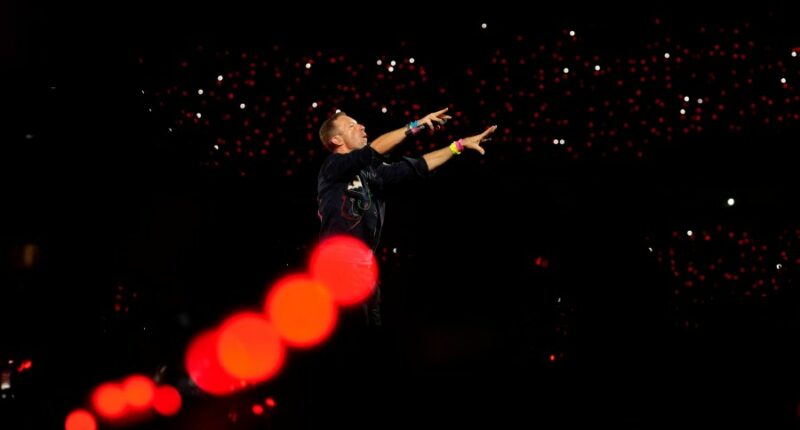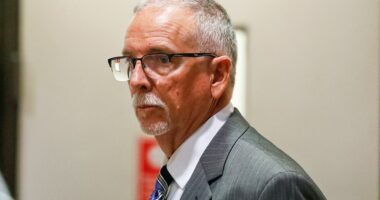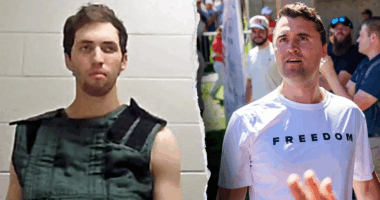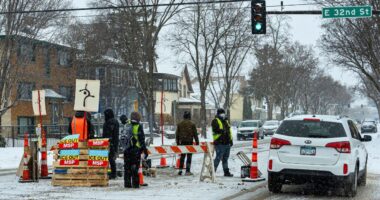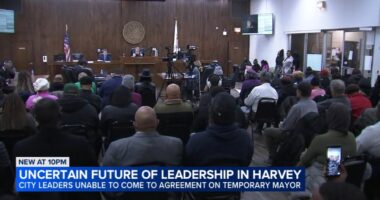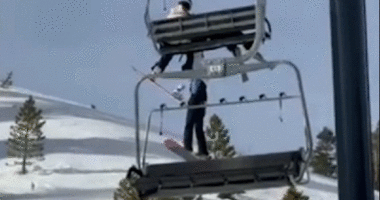Share this @internewscast.com

The IT company CEO captured in a widely circulated video showing him embracing an employee at a Coldplay concert has resigned.
Andy Byron resigned from his job as CEO of Cincinnati-based Astronomer Inc., according to a statement posted on LinkedIn by the company Saturday.
“Astronomer is dedicated to upholding the principles and culture that have guided us since our inception. We expect our leaders to exemplify the highest standards of behavior and responsibility. Unfortunately, that standard has not been upheld recently,” the company stated in a LinkedIn post.
This announcement follows the company’s recent decision to place Byron on leave. The board of directors initiated a formal investigation into the jumbotron incident, which gained widespread attention. A company spokesperson later confirmed to AP that the individuals shown were Byron and Astronomer’s chief people officer, Kristin Cabot.
The brief video clip depicts Byron and Cabot being filmed on the jumbotron at Gillette Stadium in Foxborough, Massachusetts, during a Coldplay concert that took place on Wednesday.
Lead singer Chris Martin asked the cameras to scan the crowd for his “Jumbotron Song,” when he sings a few lines about the people the camera lands on.
“Either they’re having an affair or they’re just very shy,” he joked.
Internet sleuths identified the man as the chief executive officer of a U.S.-based company and the woman as its chief people officer.
Pete DeJoy, Astronomer’s cofounder and chief product officer, has been tapped as interim CEO while the company conducts a search for Byron’s successor.
Most concert venues warn attendees that they can be filmed
It’s easy to miss, but most concert venues have signs informing the audience that they could be filmed during the event. Look for them on the walls when you arrive and around the bar areas or toilets. It’s common practice especially when bands like to use performances for music videos or concert films.
The venue in this case, Gillette Stadium in Foxborough, also has a privacy policy online which states: “When you visit our location or attend or participate in an event at our location, we may capture your image, voice and/or likeness, including through the use of CCTV cameras and/or when we film or photograph you in a public location.”
Once captured, a moment can be shared widely
“They probably would have got away with it if they hadn’t reacted,” said Alison Taylor, a clinical associate professor at New York University’s Stern School of Business. And by the time the alleged identities emerged on social media, it hit a classic nerve around “leaders acting like the rules don’t apply to them,” she added.
Still, Taylor and others stress how quickly such a video lead to an internet search to find the people involved — and note that it’s important to remember that such “doxing” isn’t just reserved for famous people. Beyond someone simply spotting a familiar face and spreading the word, technological advances, such as the rising adoption of artificial intelligence, has made it easier and faster overall to find just about anyone in a viral video today.
“It’s a little bit unsettling how easily we can be identified with biometrics, how our faces are online, how social media can track us — and how the internet has gone from being a place of interaction, to a gigantic surveillance system,” said Mary Angela Bock, an associate professor in the University of Texas at Austin’s School of Journalism and Media. “When you think about it, we are being surveilled by our social media. They’re tracking us in exchange for entertaining us.”
_____
AP Business Writer Wyatte Grantham-Philips contributed to this report from New York.
